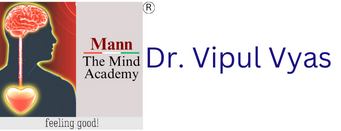Emotional Well-Being (EWB) Model with Dos and Don’ts
I am happy to publish the first ever Emotional Well-Being (EWB) Model offering very profound but simple tips to develop Emotional Well-Being of the practitioner. The outer most circle offers one tip focusing on what to ‘start’ doing and the second one focusing on what to ‘stop’ doing to build that particular competence.
The basic EI model show us, Self Awareness (SA) contributes to both Self Management (SM) and Social Awareness (SoA), and in-turn those two can help improve Relationship Management (RM). EWB model is an enhanced version of the EI model developed by Prof. Daniel Goleman and keeps the emotional well-being as a goal of an individual’s life.
Total 41 questions are used to measure pre-training EWB Score with separate score for each 15 competences within five EWB domains. After the facilitation, participants receive personal “Self Improvement Plan” for each competence with time schedule. After three months of the facilitation, 34 questions of very identical format are used to measure the 15 competences again. Results are very encouraging.
I suggest cultivating habit of an awareness of breathing and thoughts to build Self Awareness. This is one of most powerful method to remain calm and having correct perspective in life. Next, method suggests, don’t slip into time zones, i.e. past or future. It clouds thought process with either conditioned tendency or imagination (mostly negative).
Developing Self Management is the next logical step. Not so easy, though it sounds like, but ‘taking pause’ and ‘stop reacting’ needs very high alert state of mind which can break conditioning of the mind and tendency to react. But, person who has developed even little Self Awareness would find it possible and can master it with practice.
Social Awareness is all about how well we connect with others. So, listening well without passing judgements and respecting differences, are keys to build ability to connect at the workplace or at the family front. That means, not to allow preconceived notions about situation or people to guide our thinking. It is always better to remember that every person is always ‘right’ from his / her point of view.
The fourth one is about utilizing above three competences for taking correct decision and providing leadership or mentor-ship to people around us. It requires putting personal interest last and having care and concern of others at the core of communication. A person having great Relationship Management ability will always build trust among others and establish him/her as a source of inspiration for others.
The fifth and last part of the EWB Model focus on the purpose of our existence- “Emotional Well-Being”. When we follow the outer most circle, it will for sure leads to Self Esteem, Self Motivation, Optimism and Happiness.
Welcome to Emotional Well-Being!




